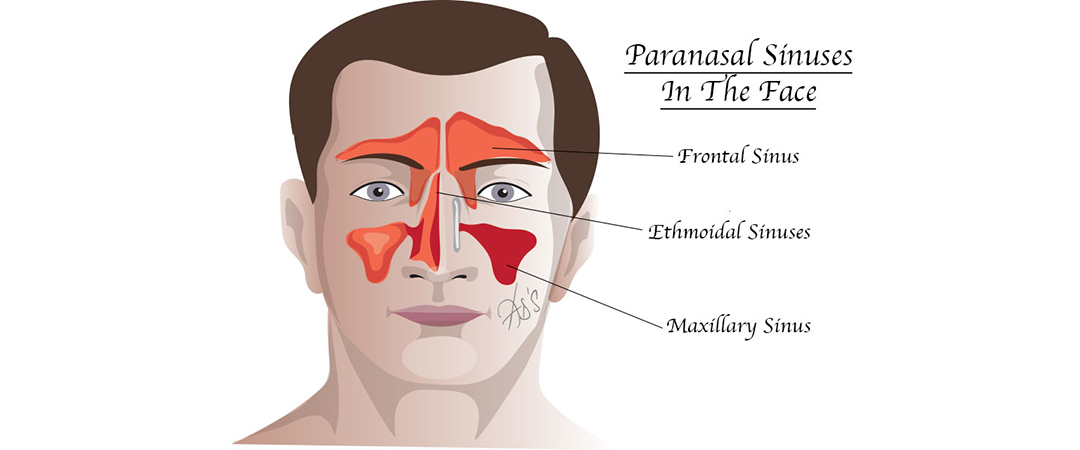Blocked nose is a very common condition
Blocked nose is a very common condition. The severity of the nasal blockage varies with each individual.
In some, even a mild nasal blockage is quite troublesome, whereas in others even a severe blockage does not impact on quality of life.
This will be taken into account when making a treatment a plan. The nasal blockage tends to get worse with age, and therefore should be investigated and treated by an ENT specialist.
Causes of blocked nose
Noses block for a variety of reasons, which include, but not limited to the following:
- Bent inside wall (deviated septum)
- Swelling of the lining of the nose (turbinate hypertrophy)
- Weakness or collapse of the outer nasal wall (valve collapse)
- Allergies and effects of simple infections such as a common cold, often know as allergic or infective rhinitis
- Prolonged and persistent use of decongestants
- Polyps in the nose
- Recreational drugs such as cocaine
What are the symptoms?
- Nasal obstruction is a symptom in itself
- In certain conditions it may be accompanied by other symptoms such as nasal discharge, which can drip from the front of the nose, or into the back of the throat (catarrh)
- Facial pain, loss of sense of smell, sneezing, itching and crusting
What can I do?
- Short term use of ‘over the counter’ medication such as a decongestant nasal spray is helpful but should not be used for longer than one week
- Steam inhalation with or without flavoured vapours help
- Rinsing the nose with salt water or a commercially made nasal rinse available from most pharmacies will help
- If your symptoms are caused by a seasonal allergy and are mild and intermittent, an antihistamine tablet will help
- If the cause of your nasal obstruction is a collapse of the outer nasal wall, splinting the wall with prosthesis such as breath easy nasal strips will help, particularly during exercise and at sleeping
- If the symptoms are related to a nasal trauma, an opinion from an ENT specialist who specialises in nasal surgery is strongly advised
How is the condition diagnosed?
The diagnosis is based on the following:
- Careful consideration of symptoms by the ENT specialist
- Examination of the nose using an endoscope
- Allergy tests, by a consultant allergist (immunologist)
- Occasionally a CT scan may be required
Treatment Options
The treatment options for your blocked nose depend on the underlying cause and severity of your symptoms and include:
- Allergen avoidance where appropriate, i.e. allergic rhinitis
- Medication, where appropriate. This includes steroid based nasal sprays, antihistamines and sometimes antibiotics as well as steroids tablets
- Surgery: which may be a simple septoplasty, septorhinoplasty or a more complex nasal valve reconstruction
- Adenoidectomy (surgical removal of the adenoids) is often done in children
- Desensitisation when appropriate
- Finally, it may not be possible to completely cure the symptoms of nasal blockage
Special Consideration
The cause of nasal obstruction is often complex and subjective rather than objective, involving many different factors. Some patients with nasal obstruction do not respond as well to treatment, although most patients are satisfied with the result of a combination of treatments. Therefore, we strongly advise you to see the right specialists.

